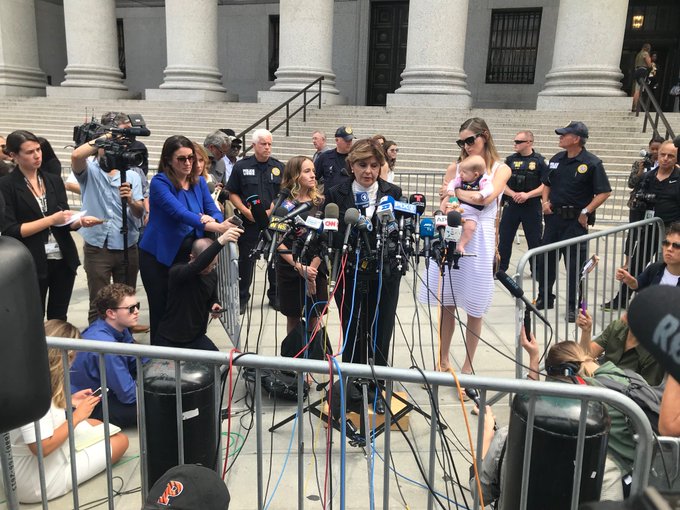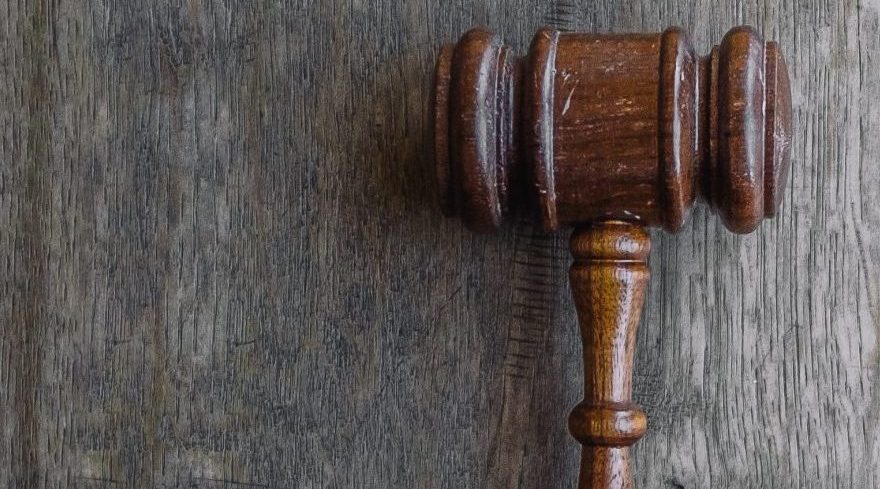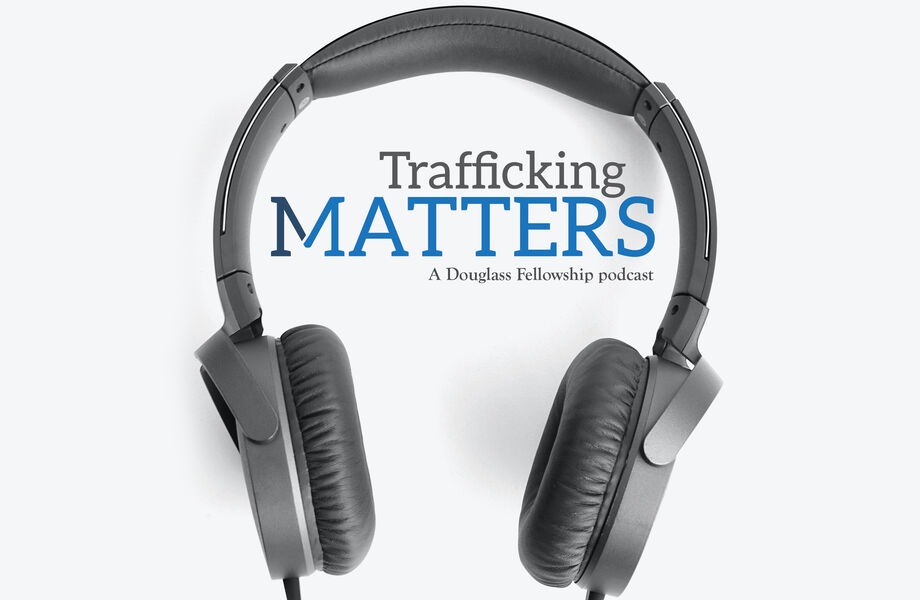By: ANITA ALVAREZ and JENNIFER GREENE
When the United Nations passed the Palermo Protocols in 2000, combatting trafficking in persons became a priority for nations around the world. As a response to the global movement, the United States passed its own legislation, the Trafficking Victim’s Protection Act, the same year. The act authorized the U.S. government to strengthen its protection of victims, its prevention of human trafficking, and its efforts to prosecute traffickers. Since that time, “bringing human traffickers to justice and assisting trafficking survivors [became] top priorities of the U.S. Department of Justice.”1 Time and again, the Department of Justice (DOJ) worked diligently on federal prosecutions and developed partnerships with state-level prosecutors to hold offenders accountable across the country. So those who have prosecuted cases and worked alongside victims are wondering today, what went wrong with the prosecution of Jeffrey Epstein?

Epstein’s Manhattan Apartment. Reuters.
In 2005, Jeffrey Epstein, a wealthy financier, owned two private islands and one of the largest private residences in Manhattan. That status was threatened when, in March of 2005, a phone call came into the Palm Beach Police Department. According to the call, Epstein had sexually assaulted a 14-year-old girl. This report led to a two-year FBI investigation, more than 10 years in a legal battle, and the potential for Epstein to spend life in prison.
It’s always difficult to comment on pending investigations and litigation because all of the facts may not be in the public record. However, based on various court records and news sources, victims began coming forward in 2005 with allegations of their own sexual abuse as minors by Epstein. According to FBI documents, these accusations launched a two-year federal and state investigation that uncovered more than 30 victims as well as revealed conduct by Epstein’s assistants to recruit girls to his home. This investigation ultimately resulted in a Non-Prosecutorial Agreement (NPA) from the federal prosecutors handling the case. An NPA is an agreement by the prosecutor, in this case, the U.S. Attorney, to not file charges if the defendant satisfies whatever the conditions of the agreement are, e.g. restitution, community services, services for rehabilitation. Generally, NPAs require the defendant to complete certain conditions for the charges to not be filed and provide an admission of guilt. In this case, one of the terms of the NPA required Epstein plead guilty to Florida state charges of soliciting a prostitute and procuring a person under the age of 18 for prostitution, allowing him to avoid federal prosecution entirely.
A Lack of Victim Consideration
Shortly after the plea, two unnamed victims of Epstein filed an appeal seeking to nullify that plea. In 2014, two additional unnamed victims joined the plea. Throughout the Appellate process, more information came forth about the initial investigation and the way the allegations were handled. The case then began to dominate headlines, causing outrage, confusion, concern, and questions. For many watching these stories, it was their first glimpse into the world of human trafficking and the toll it can take on those who survive it. For those in the anti-human trafficking community, this case was a reminder. Anti-trafficking professionals must continually reflect on the best practices for prosecution, especially as they relate to victims.
Because the primary role of the prosecutor includes seeking justice and considering the interest of victims2, best practices for the prosecution of human trafficking must be grounded in a deep understanding of how the crime works and its impact on those who experience it. Children, adults, women, and men all fall victim to the coercive tactics of traffickers.
Traffickers’ Common Methods of Coercion
Traffickers are experts at coercion. They are experts at identifying potential targets, using manipulation to build a “positive” relationship with victims and then slowly instilling fear and a sense of obligation in them. Over time, their tactics expand to include methods of coercion such as psychological pressure, threats, use of drugs or alcohol, blackmail, and physical force alongside positive interactions. These tactics force victims to engage in acts which they would normally not do. And, the intermittent negative and positive behavior results in powerful emotional attachments ensuring the victims keep engaging in those acts, increasingly becoming more dependent on their trafficker. These emotional connections are prevalent and part of what makes investigation and intervention so challenging. It is critical for prosecutors to understand these dynamics when handling human trafficking cases, particularly those that are complex, multi-jurisdictional, and involve multiple offenders — each with potentially different methods of coercing their victim(s).
Additional Offenders in Human Trafficking Operations
Prosecutors must also consider the presence of additional offenders, who facilitate and assist in human trafficking operations, and whether to prosecute those players. These players can include drivers, enforcers, recruiters, and others. According to a July 2019 DOJ press release, “Epstein allegedly worked with several employees and associates to ensure that he had a steady supply of minor victims to abuse and paid several of those victims themselves to recruit other underage girls to engage in similar sex acts for money.”3 As a best practice, prosecutors must consider these players, the acts they committed, and whether they should be charged as a primary offender or as an accomplice to the crime. The prosecutor may consider charging them in an effort to build evidence and turn them into witnesses against the primary offender. Prosecutors must consider if the prosecution of these offenders serves justice and impacts the victims.
In the Epstein case, many are trying to discern whether the plea agreement was appropriate given the initial allegations he faced. Prosecutors have various considerations before they offer a plea deal, including the nature of the original charges, the strength of the evidence (including the testimony of both the victim and witnesses), as well as any physical evidence corroborating the original charges. Prosecutors have a high burden of proof, beyond a reasonable doubt, once the case goes to trial. There are many reasons plea deals are effective and commonly used. For example, it could be in the prosecution’s best interest to offer a plea deal (usually a lesser offense), because it is a guaranteed conviction. Unlike a trial, there is no chance of the judge or a jury making a finding of not guilty. A guilty plea can save the victim from having to testify and the potential trauma of re-living that experience, especially in trafficking cases. The survivor does not have to face the offender in court or recount the abuse and coercion he or she experienced in a public forum. Additionally, cases get disposed of more quickly with a guilty plea (as opposed to a trial), which saves time and money for the court system.
Legal and Ethical Standards
However, a prosecutor must always seek justice and do what is right — not what is convenient. For example, reducing a serious felony such as human trafficking to a lesser charge of solicitation, diminishes the seriousness of the facts, the sexually violent aspects of the crime, and the impact it has had on the surviving victims. When a defendant is given a “sweetheart deal” of a plea bargain, society, victims, and the offender can perceive the behavior as acceptable. The likelihood of the defendant reoffending or continuing a human trafficking criminal enterprise is great. Public safety is, and should always be, a priority for any prosecutor’s office. Most importantly, if a plea deal is being considered or offered to the defendant, the victims on the case, both legally and ethically, should always be consulted and heard.
The precedent for ensuring victims in human trafficking cases are consulted and heard is well established, both federally and locally. The Crime Victim’s Rights Act, passed by Congress in 2004, outlines the rights afforded to crime victims in federal criminal cases. These rights include: the right to be reasonably protected from the accused; the right to be reasonably heard at any public proceeding in the district court involving release, plea, sentencing, or any parole proceeding; the reasonable right to confer with an attorney for the government in the case; the right to be treated with fairness and with respect to the victim’s dignity and privacy. The appeal filed by unnamed victims in the Epstein case was filed under the Crime Victim’s Rights Act, stating that the government failed to consult with them.
From an ethical perspective, it is also critical to include the voice of those who have lived the experience of trafficking in the case. The American Bar Association, through its General Standards for Prosecutors, allows that prosecutors have the discretion to file, decline, maintain, or dismiss criminal charges. However, it also requires that, in doing so, consideration be given to the views and motives of the victim or complainant and potential collateral impact on third parties, including witnesses or victims, be taken.
Conclusion
Without being properly held accountable, the likelihood of the trafficker reoffending or continuing their human trafficking enterprise is strong. In order to disrupt the business of trafficking and ensure an approach that is centered on victims, prosecutors must abide by all laws and ethics. Moving forward, the Epstein case should serve as a reminder for law professionals. Unless the practices described above are at the heart of every trafficking investigation, traffickers will not be held accountable and victims will continue to endure additional trauma.
Epilogue

Attorney Gloria Allred stands with two of her clients who are alleged victims of Jeffrey Epstein, following a hearing where the women and other victims were allowed to speak in court. Photo from the Miami Herald.
Jeffrey Epstein was found dead in his jail cell at the Metropolitan Correctional Facility in New York City on August 10, 2019. Following his death, more than 20 women shared their testimonies of abuse in federal court. However, because his death eliminates the ability to further pursue criminal charges, a judge dismissed all criminal charges on August 29, 2019.
- 1 “Department of Justice Recognizes Human Trafficking Prevention Month and Announces Update on Efforts to Combat This Violent Crime.” The United States Department of Justice, January 31, 2019. https://www.justice.gov/opa/pr/department-justice-recognizes-human-trafficking-prevention-month-and-announces-update-efforts.
- 2 “Standards for the Prosecution Function.” Standards for the Prosecution Function. Accessed September 25, 2019. https://www.americanbar.org/groups/criminal_justice/standards/ProsecutionFunctionFourthEdition/.
- 3 “Jeffrey Epstein Charged In Manhattan Federal Court With Sex Trafficking Of Minors.” The United States Department of Justice, July 9, 2019. https://www.justice.gov/usao-sdny/pr/jeffrey-epstein-charged-manhattan-federal-court-sex-trafficking-minors.




